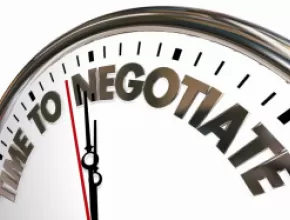I’ve noticed over the past few years that the fees and surcharges that appear on my hotel bills are creeping steadily upward. I’m apparently not alone with this observation. According to a new study by Dr. Bjorn Hanson from the NYU School of Continuing and Professional Studies, hotel fees and surcharges will account for $1.8 billion revenue in 2011, up from $1.7 billion in 2010. The increase comes from higher fees as well as more travelers (or escapists) spending time in hotels.
This doesn’t take into account the various taxes that appear on hotel bills. On a recent trip to California, my itemized hotel bill includes an Occupancy Sales Tax (12 percent) and a Convention and Tourism Tax (0.02 percent). In addition to the taxes, if I had done anything in the hotel other than sleep, I might have seen my bill peppered with fees such as telephone calls, internet fees, early check-in fees, late departure fees, business center fees, and if the hotel had been a little nicer, a resort fee.
Here are a few suggestions for avoiding hotel fees and saving money while traveling.
1. Know your fees before you travel. Unfortunately, many hotels make it difficult to have full knowledge of fees during comparison shopping. If you book your hotel room by using a website that compares rates at a variety of hotel brands, you’re only seeing the full story. Airlines have found this to be an advantage, and hotels are following suit. The least expensive hotel when comparing nightly rates may enforce additional surcharges.
One solution is to look at the individual hotels’ websites, but not every hotel is gracious enough to list all the fees that they may charge. You might have better luck calling the hotel directly and asking for the details.
2. Negotiate your rates. When I’ve put in an effort, I’ve had some success reducing the overall nightly rates and negotiating removal of some fees, particularly internet access fees. You may not have much room for negotiation if you book your travel using a third-party website or even the hotel’s own online booking system, but taking the small step of calling the hotel — and you just called to ask about fees, anyway — and asking for the best rates and fee considerations can work well. If you can pit one hotel’s offer against a local, comparable hotel’s offer, you could have even more success.
3. Bring your own internet service. If your business involves the internet, as mine does, you may find you need to be connected more often than not. Earlier this year, I decided to bring the internet with me by getting a mobile WiFi hotspot from my wireless provider, Verizon Wireless. It has helped me in a number of situations where I needed to have internet access while I was away from home. The service can be worthwhile for anyone who travels while needing to be online.
Mobile WiFi may be more expensive than a few nights each month with hotel-provided internet access, but if you need to be online on the road, the service is better than hotel room internet.
4. Avoid resort hotels. You would think that more expensive hotels would include more services. I’ve seen charges at fancier hotels for services that less expensive hotels offer for free. In a resort hotel, you may find it hard to resist the temptation to take advantage of some of the more unique services, like spa access.
5. Don’t call room service. If you’re planning for a longer stay, look for kitchen availability in the room and prepare your own meals. With a local grocery store, you could avoid dining out as well as relying on the hotel’s own expensive kitchen.
6. Stay with friends or family rather than the hotel. If you know your stay won’t be a burden, and you need to travel while spending as little money as possible, you might be successful crashing on a couch as a guest.
7. Couchsurf. Couchsurfing is one of the newest travel trends. Like the above tip, the comfort of a home often beats a hotel, and you never have to worry about hidden fees. With couchsurfing, you’ll need to trust a stranger as a host, but you can review a potential host’s references on couchsurfing.com.
8. Carry your own baggage. If you are staying in a hotel, one of the great conveniences is the presence of porters who help move your bags from the lobby to your room, for a nomial fee encouraged by an outstretched palm. In most cases, this service is unnecessary. This is one of the smaller fees you may be expected to pay, but if your goal is to take the most frugal approach, it’s easily avoidable.
9. Park elsewhere. If you’re staying at a hotel where space is at a premium, within a city for example, you may be subjecting yourself to a fee for parking. If you must bring a car, you might be able to find a parking lot nearby for less money.
10. Leave yourself enough time to review your bill. If you’re rushing to check out quickly in order to catch a flight or your next appointment, you might not give your hotel bill the attention it deserves. Some hotels are kind enough to slip your bill under your door early on your check-out date, but if not, leave enough time to review your bill line by line. If there is a charge you don’t agree with, have it removed by talking to the manager. This happened to me on one of the first hotel stays I experienced as an adult responsible for paying the bill — and at a time when I probably didn’t have enough money for taking vacations, anyway.
This article appeared originally on www.consumerismcommentary.com.





